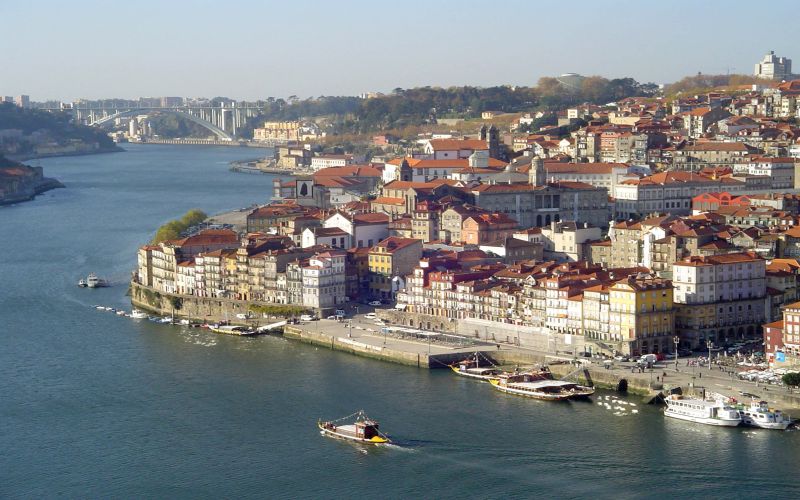Experience, Exchange and Learn – a student’s reflection on a student-staff exchange with the University of Porto
By IOE Digital, on 22 December 2022

(Image source: Paula Santos via Wikimedia Commons).
By Arthur Sun, Education Studies BA
*From the 2024/2025 academic year onwards, the Education Studies BA has been renamed the Education, Society and Culture BA.
In September 2022, I took part in the first student-staff exchange between IOE and the Education Science programme at the University of Porto (UPorto) in Portugal. The visit was supported by IOE’s International Office and my department Education, Practice and Society, with the aim of fostering international relationships and piloting a possible short exchange scheme. I was extremely lucky to be selected with four other peers as student representatives from the BA Education Studies. We spent three days in Portugal that included a seminar with Porto staff, leading a day of activities with Porto students and taking a walking tour of the university’s historic campus.
We students were given the autonomy to develop a seminar to be shared with the students in Portugal on the second day of our trip.
As students, we didn’t need to teach, but wanted to share things with the Portuguese students. We knew the engagement of the students would be essential, so we created many engaging games: one guessing song titles and a truth or lie activity taking inspiration from the different colonial histories. We also shared some concrete knowledge with the students such as introducing the colonial histories of the UK and Portugal to demonstrate the different impacts of modern university education.
I personally learnt a lot and have been very inspired by this trip. The following are two key ideas that I want to share:
- ‘Hidden discrimination’ among same language-speakers
On the first day after lunch, we went to the campus for a meeting with Porto academics where we discussed educational inequality, students’ performance and other matters. One of the Porto teachers said something that inspired me. He told us the majority of the foreign students at UPorto are Brazilian and assumed to be Portuguese speakers, just like the native Portuguese students. However, Portuguese students can identify them as Brazilian Portuguese speakers, and might exclude them from their cultural cohorts.
It was surprising for me to realise that even students who have similar language backgrounds could create discrimination to distinguish themselves. The same could be found among English speakers who might discriminate against foreign speakers with accents.
- Different colonial histories have different cultural and academic influences on students
Our presentation had three parts: Past, Present, and Future, involving the history of education, education inequality, and possible solutions to solve the inequality. I talked about the past and thought it would be essential to first refer to the different colonial histories of Portugal and the UK. I noticed the students from Porto seemed to feel quite shameful and guilty about their colonial ties to countries such as Brazil and Angola, but they also mentioned they rarely studied those histories. At UCL, we do examine UCL’s colonial links, and its role in legitimising eugenics, through a module about UCL’s history. So, what causes this kind of difference?
Historically and geographically speaking, the Portuguese world (countries that speak Portuguese) is smaller than the English world because the British Empire has historically had a significant influence on the world and as such English has become an international language. In my view, the omnipresence of English speakers, plus the fact that many powerful countries are English-speaking, represents the power relations of English to the whole world. Therefore, it feels shameful for us to refer back to the less glorious history in the past, because it is what it is and no one can change that, and much of modern world has been built upon this colonial history.
As for the Portuguese world, they have their own colonial history and culture that still affects Brazil, Angola and Mozambique and Portuguese students seek to question the integrity of Portuguese colonial histories. I think if Portuguese language had become as omnipresent as English language, those students might have a lesser sense of guilt.
The three-day trip was highly intensive and hard work but also rewarding and unforgettable. I am truly thankful for the teaching staff on this trip, both from UCL (especially JD Carpentieri, who did most of the work to make the trip happen!), the University of Porto. and also, my excellent peers, who supported me. We helped each other all the time! Experiencing is one essential part of studying, which makes this type of visit precious, especially after Brexit and the pandemic disrupting trips between the UK and mainland Europe. From a student perspective, I hope this kind of activity can continue in the future and involve more students. I urge you to go and experience different academics, exchange ideas, and learn!
 Close
Close


